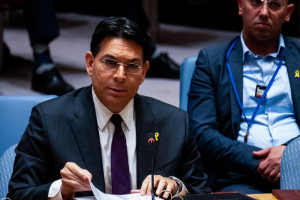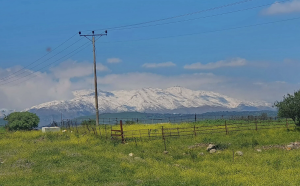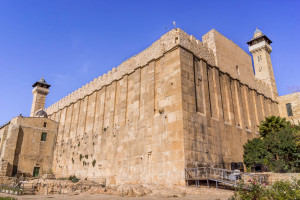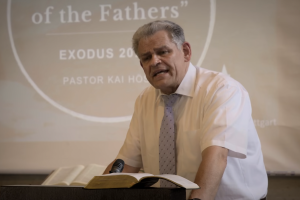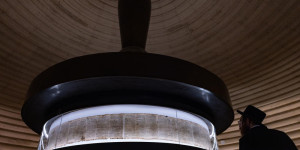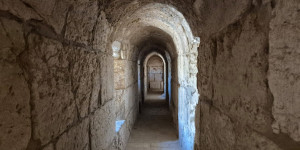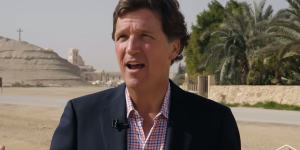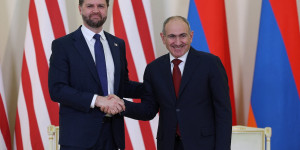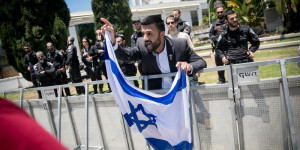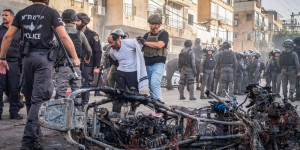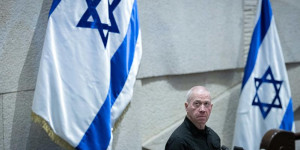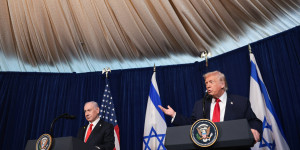Did the UN just guarantee Hamas’ survival?
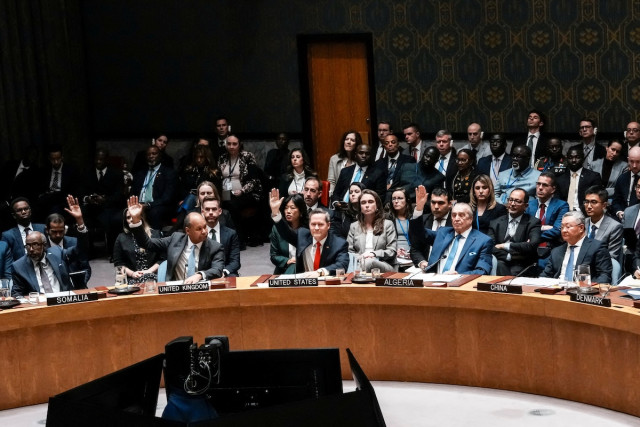
The United Nations Security Council's decision to establish an international security force (ISF) in Gaza could have the opposite effect of what its supporters intend. Instead of stabilizing the region, it may help ensure that Hamas remains in power.
It may also trigger a broader wave of international terror, as empowered jihadists interpret Hamas' perceived win against the United States and Israel as a green light to escalate violence.
"The UN Security Council's vote on establishing an international stabilization force … is an ill-advised and poorly timed move that will only undermine security, stability, and peace in the Middle East," Dan Diker, President of the Jerusalem Center for Security and Foreign Affairs, told ALL ISRAEL NEWS.
The U.S. resolution for Gaza describes the establishment of an ISF that will be deployed under a unified command acceptable to the "Board of Peace," with forces contributed by participating states.
"The ISF shall work with Israel and Egypt, without prejudice to their existing agreements, along with the newly trained and vetted Palestinian police force, to help secure border areas; stabilize the security environment in Gaza by ensuring the process of demilitarizing the Gaza Strip, including the destruction and prevention of rebuilding of the military, terror, and offensive infrastructure, as well as the permanent decommissioning of weapons from non-state armed groups; protect civilians, including humanitarian operations; train and provide support to the vetted Palestinian police forces; coordinate with relevant States to secure humanitarian corridors; and undertake such additional tasks as may be necessary," the resolution reads.
The ISF would also be responsible for monitoring the ceasefire's implementation.
According to the resolution, as the ISF helps establish stability and Hamas demilitarizes, the Israel Defense Forces will withdraw from Gaza to a defined security perimeter.
Yet this framework raises multiple concerns.
First, the establishment of the ISF is premature, given that Hamas has not fulfilled its obligation to return all Israeli hostages, and three bodies remain in the Strip.
Moreover, the arrangement also places pressure on Israel to maintain a ceasefire with Hamas, a group that has already rejected the resolution and refused to disarm. The ISF will not be able to disarm Hamas but will likely interfere with Israel's ability to do so.
Let's look at the troops that have volunteered.
Indonesia, for example, announced that up to 20,000 personnel have been trained and readied to take part in the ISF — but the country's defense minister stressed that these forces would focus strictly on humanitarian tasks, such as providing healthcare and supporting reconstruction efforts in the war-torn enclave.
Saudi Arabia and the United Arab Emirates, meanwhile, have said they oppose sending troops to Gaza while Hamas continues to hold military power, Israeli media reported.
Turkey and Qatar may send forces, but their role would likely support Hamas' continued rule rather than help remove it.
"No one on this international stabilization force is going to confront Hamas militarily," Diker stressed. "They won't force them to disarm because they won't want Hamas to kill them."
He continued, "This UN Security Council vote … merely brings pressure upon Israel to restrain its counterterror activities against Hamas, which has said it will not disarm voluntarily. In addition, the UN Security Council resolution approving an international security force remains a fantasy because no international security force will disarm Hamas. Therefore, the UN Security Council resolution only becomes a lever to pressure Israel to make further concessions in Gaza. At the same time, Hamas continues to threaten peace and security in Gaza against Israel and ultimately against any international force that would attempt to disarm and demilitarize Hamas and the Gaza Strip."
Just last month, Israel assessed that Hamas still has at least 20,000 fighters in place and was luring thousands of recruits.
"All the vote does is put more pressure on Israel to withdraw," Diker said. "Here you have the internationalization of a whole pressure campaign on Israel when nothing has really changed in terms of Gaza."
Diker's organization surveyed Jewish and Arab Israelis ahead of the UNSC vote. The survey was carried out by Dr. Menachem Lazar of the Lazar Research Institute. It found that more than a quarter (26%) of Israelis prefer sole Israeli military control in Gaza over the ISF. Moreover, while 62% would support the deployment of a security body, more than half (52%) said they would prefer it to be U.S.-only or Western-only.
The resolution, while placing Israel in a corner, was, in theory, a win for Trump and his vision for the Middle East.
Trump is eager to draw more Middle Eastern investment into the United States. Saudi Prime Minister Mohammed bin Salman (MBS) told Trump the day after the vote that his country will boost its U.S. investments to $1 trillion, up from the $600 billion it pledged during Trump’s May visit.
Furthermore, Trump wants the ceasefire to hold long enough to bolster his pursuit of the Nobel Peace Prize, which hinges on creating the impression that the 20-point plan is progressing.
The Arab states are playing hardball because they understand how much Trump wants this moment to succeed, including Saudi Arabia, which knows how invested the president has been in pushing normalization between Saudi Arabia and Israel.
The UNSC approval was intended to signal to Saudi Arabia that a pathway to a Palestinian state, the Saudis' primary demand for normalization, now exists. However, Riyadh appears to grasp that fully implementing the 20-point plan is, at best, an illusion.
Palestinian self-determination is the very last phase of the plan.
MBS during his visit to Washington this week, reportedly told Trump that his country wants to join the Abraham Accords but will also "make sure to secure a path to a two-state solution," indicating he does not believe such a path has already been established.
At the same time, Prime Minister Benjamin Netanyahu and his government have outright rejected the notion of a Palestinian state.
On Tuesday night, the prime minister stressed that Israel is "determined to complete the war on all fronts, including disarming Hamas and demilitarizing the Gaza Strip to ensure that Gaza will no longer pose a greater danger."
The same JCFA poll taken before the vote asked Israelis how they feel about a Palestinian state. Some 70% said they oppose the establishment of a state on the 1967 lines following Oct. 7, the highest level recorded since the war began. Among Jewish Israelis, that number jumped to 79%.
Even when asked whether normalization with Saudi Arabia would change their views, 62% of Israelis said they would still oppose a state.
All of this leads to one unavoidable conclusion: The U.S. resolution, even with UNSC backing, is political theater rather than an operational blueprint. An international force that won't confront Hamas and a ceasefire Hamas refuses to uphold cannot deliver the security its authors promise.
Unless Hamas is forcibly disarmed, something only Israel has demonstrated both the will and capacity to do, the 20-point plan will remain precisely where it stands today: little more than an illusion. And the Western world will continue to live in the shadow of the threat.
Want to help more people find our reporting from Israel? Leave a quick Google review of our website here.
.jpg)
Maayan Hoffman is a veteran American-Israeli journalist. She is the Executive Editor of ILTV News and formerly served as News Editor and Deputy CEO of The Jerusalem Post, where she launched the paper’s Christian World portal. She is also a correspondent for The Media Line and host of the Hadassah on Call podcast.
You might also like to read this:


